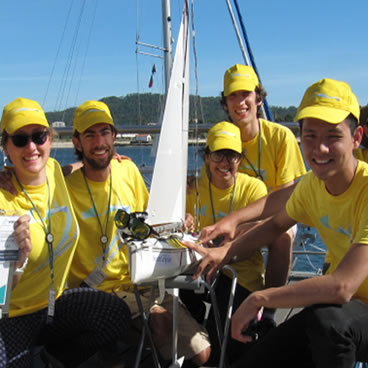Hartley News Online Your alumni and supporter magazine
The car industry is facing unprecedented change with the advent of greener technology leading the charge towards electric vehicles.
Pressure to meet national and international deadlines to phase out conventional petrol and diesel engines in response to rising global pollution levels has added to the step change in embracing the greener alternatives.
Playing a key role in that change are academics at the University of Southampton, supported by our community of alumni.
Worldwide numbers of electric cars and trucks are set to rise to 5.3 million by 2020. In the UK, the anticipated pressure that charging these vehicles will cause to the National Grid’s energy supply is a priority issue.
Solving the problem of how the supply of electricity can keep up with demand is the subject of research at the University of Southampton.
Professor of Power Electronics Machines and Drives, Suleiman Sharkh, and Professor of Energy Technology, Andrew Cruden, have just completed a three-year project funded by the Engineering and Physical Sciences Research Council on a vehicle to grid (V2G) enabled power network.
This network allows electric vehicles to give back power to the grid to support it at times of high demand, and users to make a profit from selling this energy. Suleiman and Andrew have been able to test the feasibility of charging and discharging batteries used in electric car technology, and model ways to make the process more energy efficient, using smart grids with internet technology to control the system.
Supporting the University in this endeavour are Southampton alumni, who have provided the equipment to undertake some of this research. Dr Dennis Doerffel and Dr Mohammad Abusara have ensured their legacy continues to enhance the teaching and learning of current students at Southampton through their continued links to the University.
After completing his PhD at Southampton in 2007 Dennis founded REAPsystems which specialises in energy storage and propulsion systems. Dennis described how his ongoing relationship with the University allows him to combine his passion for research with the vision of how it could be applied to real-life challenges.
He says:
“Having that collaboration with researchers is extremely useful to businesses like mine, but I would say it is a mutually beneficial arrangement as often researchers can work away at something but not be addressing the right questions.
“By working together there is better opportunity to produce industry-ready graduates who have applied innovation and have the ability to transform it into something useful.”
Dennis is now building on his relationship with the University with new projects including developing hybrid marine power systems.He described the green-electrics sector as having had a ‘breakthrough’ in recent times, but added there needed to be a good working relationship to capitalise on it.
Dennis says:
Anything ‘green’ requires a slightly different mindset and we need to go away from greed and fear as motivating factors for people to invest in it.
“Historically, getting investors to back it was difficult as it was a risk, and the difficulty has always been there are cheaper alternatives to green technology. If it had been easy, people would have done it but it takes an amazing amount of vision and a huge amount of your own investment.
The University’s reputation in the field of battery technology was further underlined by the recent announcement that Southampton was one of seven founding universities involved in the Faraday Battery Institution
The aim of the programme is to make the UK the go-to place for the research, development, manufacture and production of new battery technologies for both the automotive and the wider relevant sectors.



